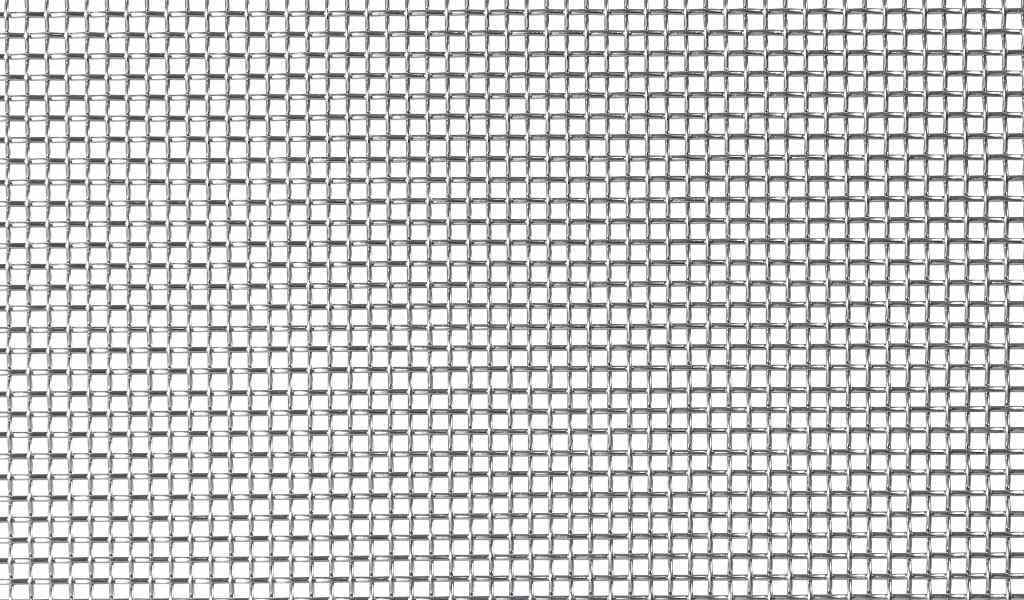Quality Control in Wire Mesh Manufacturing: Why It's Essential
When it comes to relying on wire mesh in your products or processes, even a small defect can lead to equipment failure, production delays, or compromised quality. Unfortunately, not all suppliers apply the same level of care or precision, putting your operation at risk.
The solution lies in partnering with a manufacturer that puts quality control at the center of everything they do. Strong quality control procedures help to ensure mesh consistency, reliability, and overall performance.
At W.S. Tyler, quality has been our commitment for over 150 years. We believe in making the world cleaner and safer through precision-engineered solutions and a customer-first approach that goes beyond simply supplying wire mesh.
In this article, we’ll explore why quality control matters in wire mesh manufacturing, what key standards to look for, common defects that can be avoided, and how to evaluate a supplier’s true commitment to quality.
Why Quality Control Matters in Wire Mesh Manufacturing
In wire mesh manufacturing, quality control shouldn’t just be a box to check – it should be a critical process that directly impacts product performance, safety, and overall customer satisfaction. This is because wire mesh is utilized across a diverse variety of industries, including construction, mining, agriculture, aerospace, and pharmaceuticals.
Each of these sectors demands rigorous standards for strength, durability, and precision. Without a thorough quality control system in place, even minor inconsistencies can lead to costly and time-consuming failures in the field.
Now, it is widely known that consistent quality promotes product integrity. Variations in wire diameter, mesh spacing, or welding accuracy can compromise load-bearing capacity or filtration effectiveness.
Consistent quality can help make sure that the product performs as expected every time.
Compliance with industry standards (such as ASTM, ISO, or EN specifications) depends on reliable quality control assurance procedures. These certifications are often required in regulated industries and safety-critical applications.
Ultimately, quality control in wire mesh manufacturing safeguards not just the product, but the people, processes, and projects that depend on it.
Key Aspects of Wire Mesh Quality Standards
A critical role in quality control is maintaining the standards that make wire mesh dependable in various demanding applications. That said, there are multiple steps required to ensure consistency and performance.
Material Quality and Composition
Strict material checks are required to ensure that only high-grade, traceable metals are used. This is a key quality control measure that prevents premature failure and helps to ensure long-term reliability.
Wire Diameter Consistency
A good quality control system consistently monitors wire thickness throughout production to ensure uniformity. When done correctly, it prevents even the slightest variations that could negatively impact overall strength and mesh performance.
Want to learn more about how accurate wire diameters are achieved? Read the article below:
Mesh Size and Opening Accuracy
Accurate mesh spacing is extremely vital for overall functionality, especially in filtration and other industrial applications. Implementing reliable quality control will work to ensure that every weave meets the precise requirements that are necessary to maintain a high standard.
Rigorous Product Testing
Multi-point inspections and tests, which include tensile strength testing to overall corrosion resistance benchmarking, are vital to quality control standards as they help catch defects early. In turn, only reliable, high-performance wire mesh reaches the customer.
Blemishes Commonly Prevented by Quality Control
Effective quality control in wire mesh manufacturing is essential to catching issues early and ensuring that the final product performs as intended. While rare, issues with the manufacturing of woven wire mesh, referred to as blemishes, do occur and can affect the performance of the product negatively.

There are a variety of major blemishes to look out for, which include smash, burst, broken shot, variation in weft count, draw-over, slack shot, creeper, and reed mark.
Smash: When a major fault occurs throughout the entire weave pattern
Burst: When variating tears in the wire mesh form after the weave gets tensioned during the weaving process and become unstable
Broken Shot: When a misaligned wire obstructs subsequent weft wires from laying flat, resulting in the formation of wide apertures
Variation in Weft Count: When there is an incorrect number of weft wires across a given length of a wire mesh weave, which leads to spacing or density inconsistencies
Draw-Over: When there are missing weft wires within a specific section of the wire mesh weave, resulting in gaps or structural weakness
Slack Shot: When a weft wire extends longer than adjacent wires, creating unevenness in the weave and potentially leading to issues with mesh tensioning and appearance
Creeper: When a warp wire is longer than the surrounding wires, causing distortion in the weave and potential inconsistencies in mesh uniformity
Reed Mark: When a row of apertures is wider than normal along the warp direction, indicating discrepancies in the mesh alignment or tensioning
To combat these issues before final production is completed, several quality control best practices should be utilized. They include regular visual inspections, precise wire diameter measurements, tension monitoring, automated weaving checks, and testing for strength and alignment.
What Buyers Should Look for in a Quality Wire Mesh Supplier
Choosing the right wire mesh supplier isn’t just about the price of the mesh – it’s also about reliability, consistency, and overall value over time. A quality supplier ensures that your wire mesh meets performance standards, project timelines, and strict regulatory requirements.
So, how do you identify the right wire mesh supplier?
Well, a good start is to look for clear, consistent quality control practices. Reputable manufacturers inspect materials and products at every stage, from incoming raw materials to final testing.
Quality wire mesh suppliers should offer documentation, certifications, and proof of compliance with industry standards like ASTM or ISO. This helps prevent the use of low-quality material and aids in regulatory compliance.
Another important detail to look out for is mesh consistency, which includes uniform wire diameter, tight tolerances, and accurate aperture sizing. This indicates that a manufacturer prioritizes precision and performance, which is important to maintain an elevated quality control-centric operation.
Companies with strict quality control parameters deliver wire mesh solutions that have fewer defects, thus lower chances of costly failures or downtime. In contrast, companies with weak or inconsistent quality control practices often produce wire mesh with irregular openings or substandard materials.
These issues may not always be visible at first, but they can compromise performance, which can be the difference between getting a job done right the first time or dealing with avoidable setbacks later.
Why Quality Control in Wire Mesh Manufacturing Matters to You and to Us
Quality control is so much more than a technical requirement for you – it’s the foundation of trust between you and your supplier. When wire mesh meets the highest standards, it supports your work, protects your processes, and keeps your operation running smoothly.
It means confidence in knowing the product will perform as expected, with minimal risk and maximum efficiency.
Choosing a partner who shares your expectations for consistency, reliability, and precision helps ensure every project starts with the right materials. When you work with a supplier who shares your values, you gain both a quality product and peace of mind.
That shared commitment is what turns a relationship into a lasting partnership.
Find Reliable Quality Control Through the Right Wire Mesh Partner
Consistent, high-quality wire mesh is the result of proven processes, rigorous inspections, and a shared commitment to precision. As we’ve covered, quality control plays a critical role in preventing defects, ensuring performance, and protecting your operation from avoidable risks.
Moving forward, the best step you can take is to evaluate your current or potential suppliers based on their quality control systems, customer support, and willingness to act as a true partner and not just as a vendor.
With over 150 years of wire mesh experience, W.S. Tyler understands the value of quality control just as much as you do and offers you the expertise to deliver the confidence, consistency, and support that comes from partnering with a company as committed to quality control as you are.
Looking to learn more about choosing the right wire mesh supplier? Discover what to look for in a trusted partner in our article:
About Dylan Polz
Dylan is a Content Writer with 2 years of experience in marketing and SEO. Passionate about learning and strengthening his writing skills, he is currently expanding his expertise in particle analysis and woven wire mesh technologies. With a strong belief in the power of information to drive positive change, his goal is to develop content that supports cleaner, safer solutions across all industries.



